Makeup Basics 101: Understanding The Difference Between Contour And Bronzer!
Analyze how the difference between contour and bronzer influences the final product of a beauty routine.
On Mar 13, 2024 – 8 minutes read
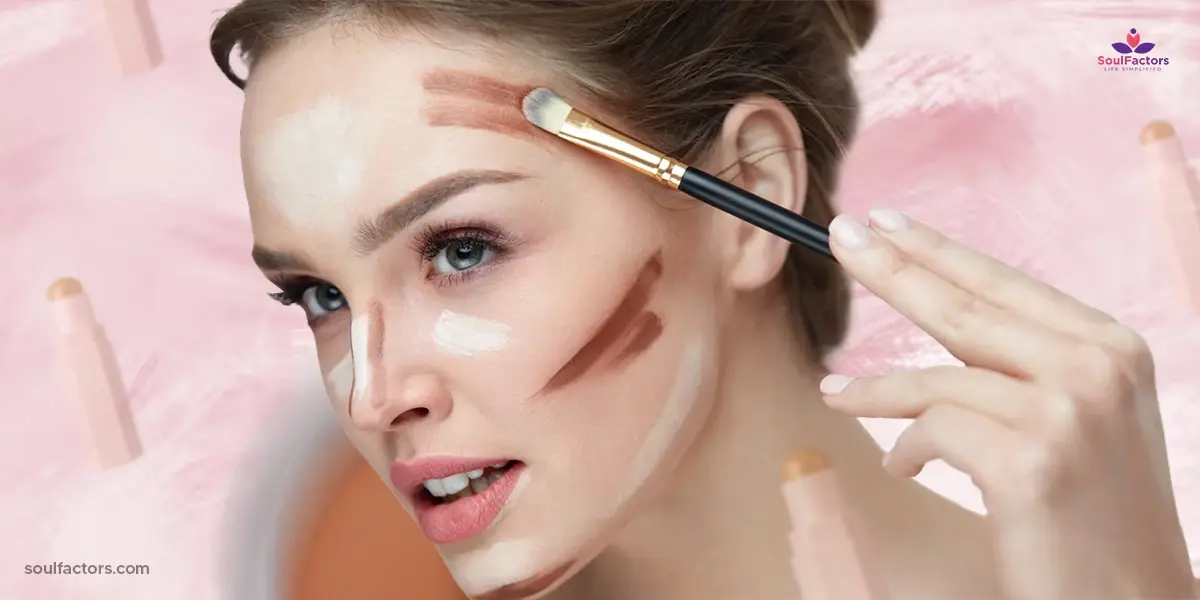
Cosmetics typically evoke thoughts of classic staples like nude lipstick, mascara, and foundation. These essentials have long been the cornerstone of beauty routines, often hailed as the holy grail of makeup. However, the true artistry of makeup extends well beyond these basics. It’s in the nuanced techniques of contouring and bronzing that the real transformative power lies. When applied skillfully, these methods can redefine and enhance facial structures, sculpting your features to perfection. So, is there a difference between contour and bronzer?
For those new to makeup, it’s a common misconception that these products serve the same purpose. Understanding the distinct roles and applications of contour and bronzer is essential for mastering a makeup look that not only flatters but also accentuates your best features. This article will delve into their unique characteristics and provide guidance on how to use them effectively.
What Is The Difference Between Contour And Bronzer?
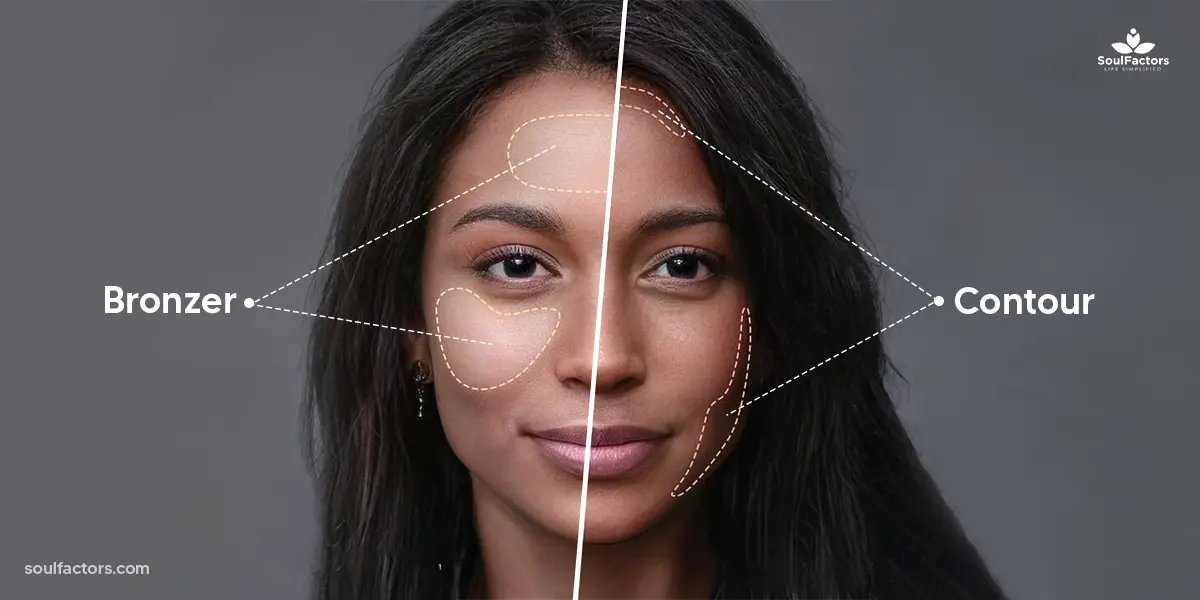
First things first, let’s clear up the roles of contour and bronzer in your makeup routine.
Purpose:
Think of contouring as the architect of your makeup routine. It sculpts, defines, and emphasizes your facial structure. By strategically placing contour along the hollows of your cheeks, sides of your nose, and jawline, you can create a chiseled, more defined appearance. On the flip side, bronzer plays the role of the artist, infusing warmth and a sun-kissed glow. Applied to areas where sunlight naturally hits your face, such as your forehead, cheekbones, and nose bridge, bronzer adds a lively, healthy radiance.
Texture:
Texture is another arena where contour and bronzer diverge. Contours are typically matte, designed to emulate natural shadows and depth without reflecting light. Bronzers can be found in both matte and shimmer variants. Matte bronzers simulate a natural tan, while shimmer-infused bronzers give your skin a luminous, radiant finish.
Application:
The art of application is key. Contouring demands precision – it’s about enhancing specific facial features and blending meticulously to avoid stark contrasts. Bronzing is more lenient in its approach. Swept across larger areas, it’s blended to emulate a natural, sun-drenched effect.
Is It Better To Use Bronzer Or Contour?
The choice between bronzer and contour hinges on the desired outcome of your makeup look. Learning the difference between contour and bronzer can help you with this. Contour is your go-to for sculpting and defining facial features. It’s best suited for creating a chiseled look, emphasizing cheekbones, and refining the jawline and nose. It mimics natural shadows, ideally for more structured, dramatic makeup styles.
Bronzer, on the other hand, is all about achieving a warm, sun-kissed glow. It’s perfect for adding a touch of radiance and healthy color, especially in makeup looks that aim for a natural, fresh-faced appearance. Bronzers are great for enhancing a tan or bringing a bit of life to a dull complexion.
Now, the question arises: can you use contour and bronzer at the same time? Absolutely! They can complement each other beautifully when used correctly. Apply contour first to define and shape, then add bronzer for warmth.
How To Find The Right Bronzer And Contour Shades For Your Skin Tone?
Choosing the right shades for bronzer and contour is essential for achieving a natural and flattering appearance. For contouring, select a shade that is approximately two shades darker than your skin tone. It should have a cool or neutral undertone to effectively replicate natural shadows on your skin. Avoid shades that are too warm, as they may appear unnatural.
When picking out a bronzer, aim for a shade that resembles your skin tone when lightly tanned. Warmth is key in selecting a bronzer. If you have a fair complexion, opt for honey-colored bronzers. Medium skin tones can choose golden or amber bronzer shades, while deeper skin tones are complemented by rich, earthy bronzer shades.
How To Contour Like A Pro?
Contouring like a pro begins with understanding your face shape and knowing where to shade and highlight. Here’s a step-by-step guide:
- Identify Your Face Shape: Whether you have a round, oval, square, or heart-shaped face, contour placement varies.
- Choose the Right Tool: Use an angled brush for precise application.
- Apply Contour: Start with the hollows of your cheeks. Suck in your cheeks and apply contour in a line towards your ear. Add a touch of contour along your hairline, jawline, and sides of your nose.
- Blend the lines for a seamless finish: Ensure there are no harsh lines for a natural look.
- Highlight: Apply a highlighter above your cheekbones, on the bridge of your nose, and your forehead’s center to enhance your contouring.
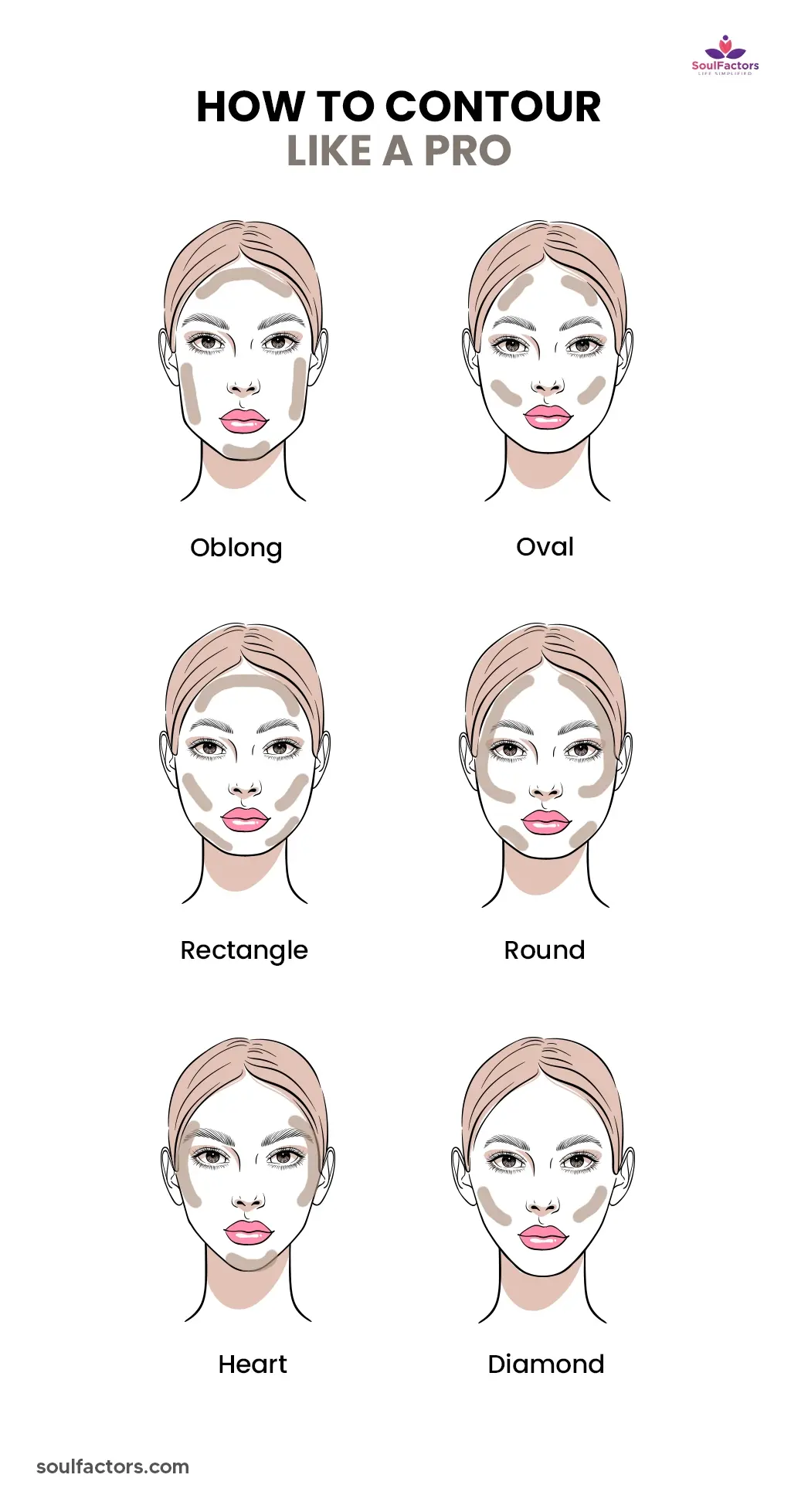
Take a look at your face shape to understand your approach with the brush:
- Oval Face: Gently contour below your cheekbones and along the hairline of your forehead to uphold the natural harmony of your face shape.
- Round Face: Sculpt along the sides of your forehead and temples to refine your face shape. Apply contour below your cheekbones, extending from your ears to the center of your cheeks, to enhance definition.
- Square Face: Soften the angular features of your face by contouring the edges of your jawline and the sides of your forehead. Blend the contour seamlessly for a natural appearance.
- Heart-Shaped Face: Contour the sides of your forehead to balance the broader upper face with the narrower lower face. Lightly contour the chin to soften its appearance.
- Long Face: Apply contour on the forehead and chin to create the illusion of a shorter face. Sculpt below the cheekbones from the ears to the center of your cheeks to add dimension.
- Diamond Face: Define your cheekbones from the ears to just below the apples of your cheeks with contour. Optionally, lightly contour the jawline to soften its appearance.
To make sure your contouring is always on fleek, here are some pro tips:
- Product Choice: Decide between cream or powder contour. Cream contours blend easily and offer a natural look, ideal for creamy makeup bases. Powder contours are great for a matte finish and longer wear, suitable for oily complexions.
- Application: For cream contour, use a brush, sponge, or fingers. Map out your desired shape before blending for precision. Use a makeup sponge to soften the edges for a natural finish. With powder contour, use a big brush or an angled applicator for a shine-free finish. Build up the product for desired intensity, and blend different shades for definition.
The Best Contouring Kits In 2023
Wet n Wild MegaGlo Dual-ended Contour Stick
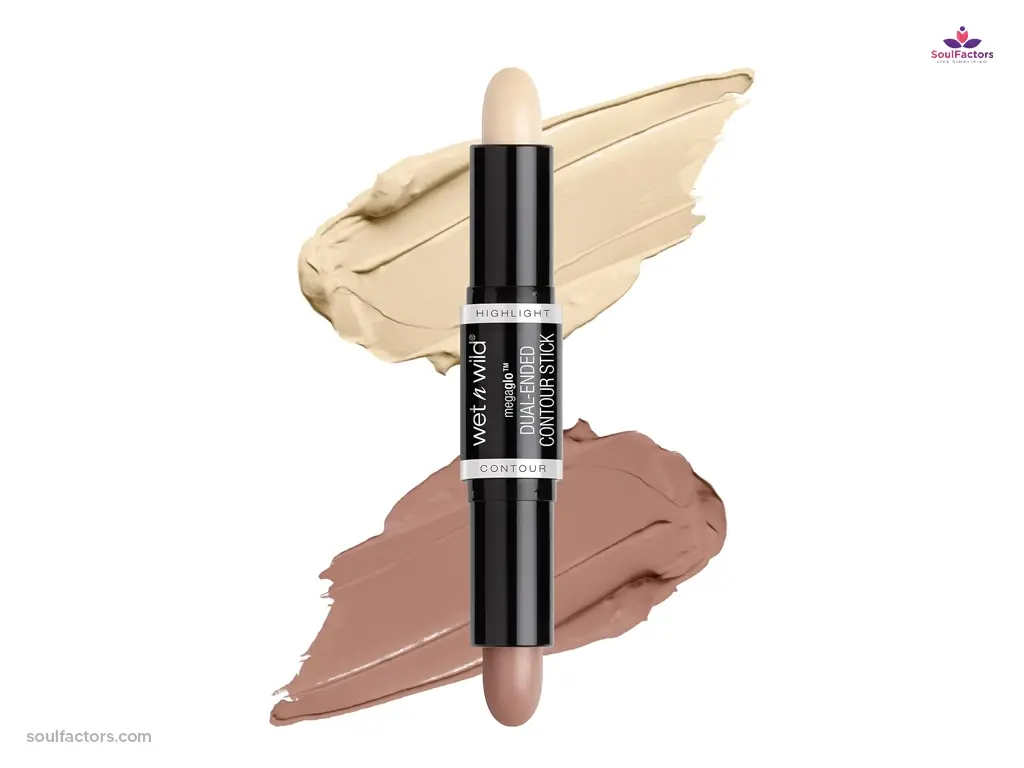
Price: $5.47
This kit offers versatility for every skin tone and is a fan favorite. It’s praised for its creamy formula and ease of blending.
NYX Professional Makeup Conceal Correct Contour Palette
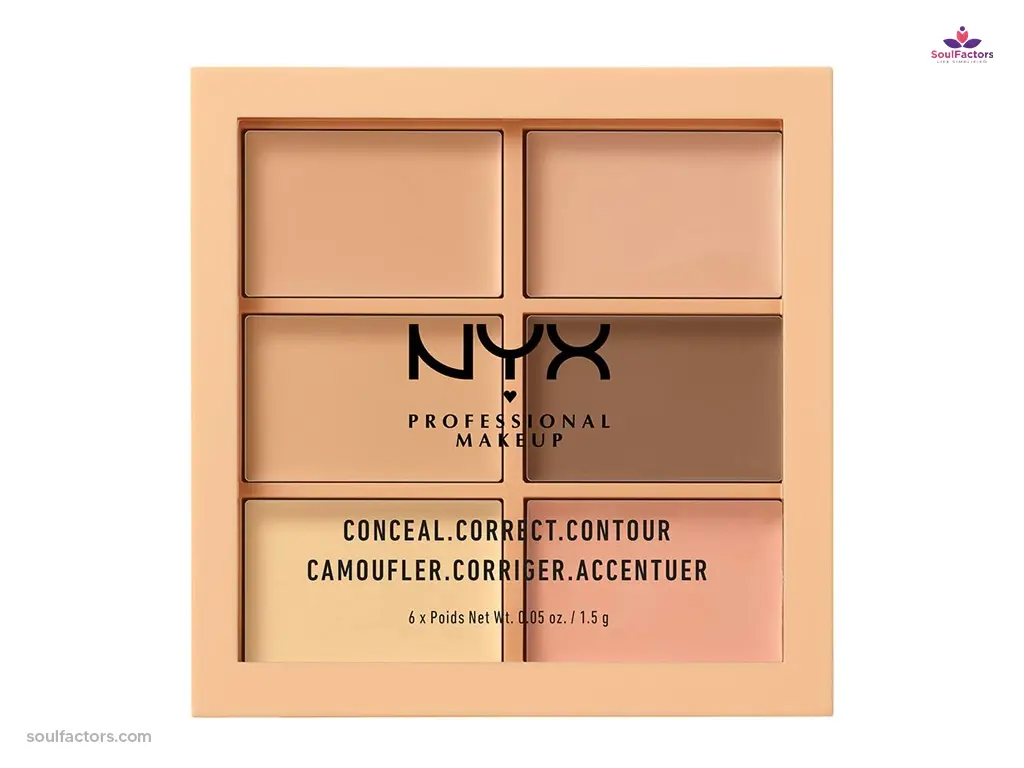
Price: $9.99
Ideal for deeper skin tones, this kit provides a natural-looking contour with a matte finish.
Anastasia Beverly Hills Contour Kit
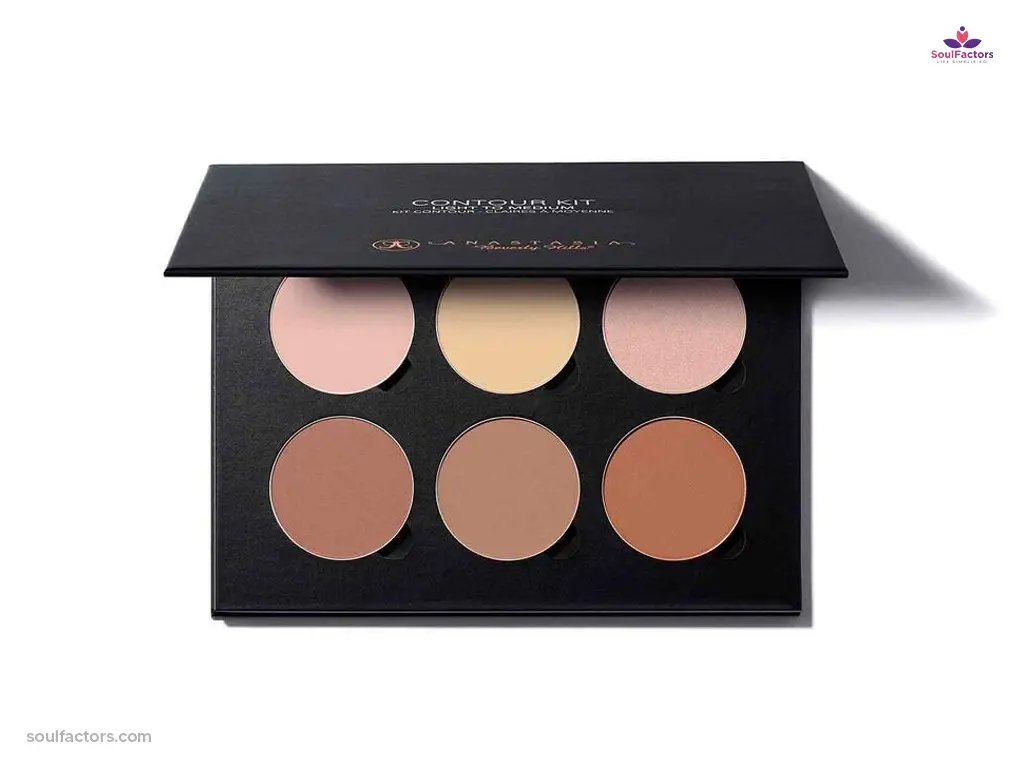
Price: $40.00
A budget-friendly option that includes contour, highlighter, and blush for a complete sculpting solution.
How To Apply Bronzer
Applying bronzer is all about enhancing your natural complexion with a sun-kissed glow. However, sometimes it is easy to overdo things. Here’s how you can get bronzing right on your first try.
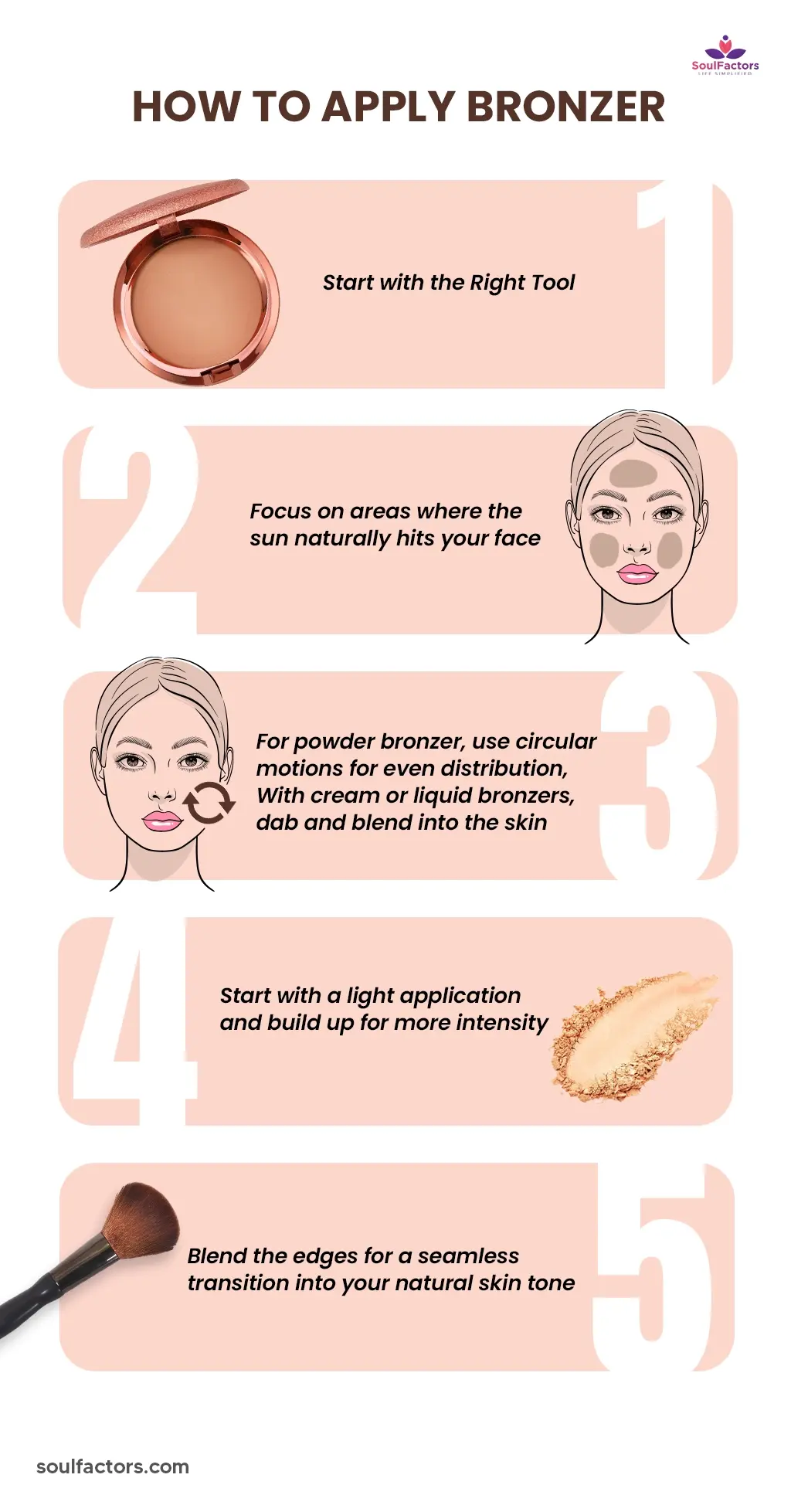
- Start with the Right Tool: Use a large, fluffy brush for powder bronzers and a dense brush or fingers for cream formulas.
- Application Area: Focus on areas where the sun naturally hits your face – cheekbones, temples, and along the hairline.
- Technique: For powder bronzer, use circular motions for even distribution. With cream or liquid bronzers, dab and blend into the skin for a natural look.
- Buildability: Start with a light application and build up for more intensity. This prevents a muddy or overdone appearance.
- Blend: Ensure to blend the edges for a seamless transition into your natural skin tone.
The Best Bronzers In 2023
Too Faced Soleil Matte Bronzer
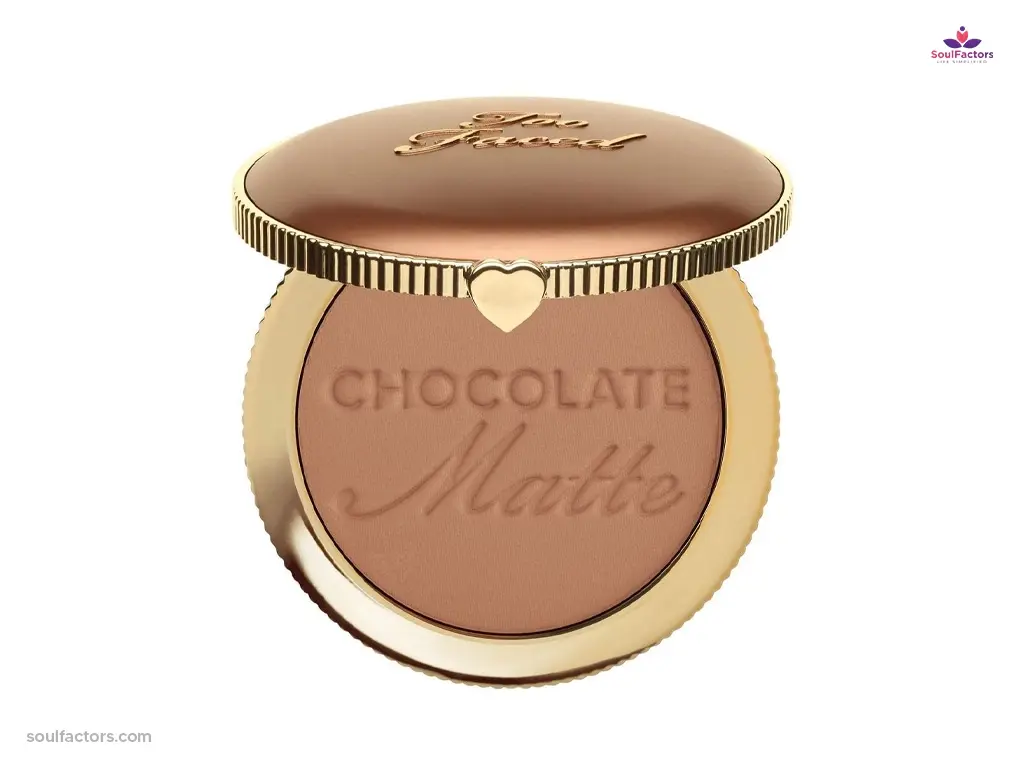
Price: $28.54
Known for its buildable quality and seamless blending over the foundation. It’s creamy and soft, perfect for achieving bronzed cheekbones.
e.l.f Putty Bronzer
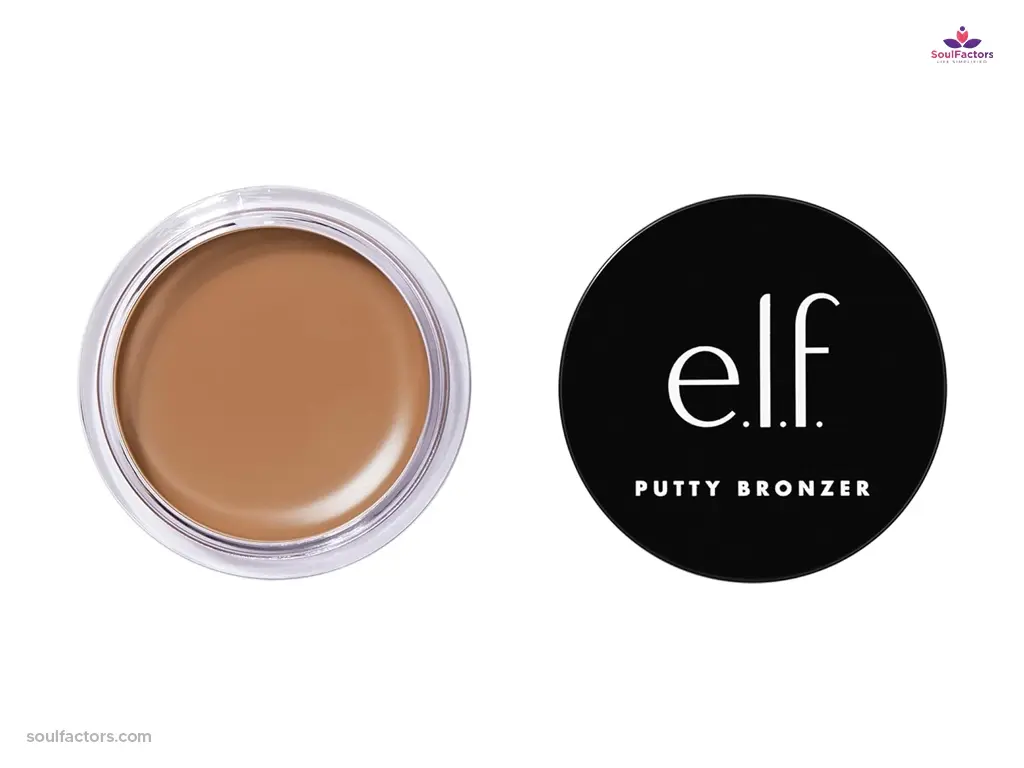
Price: $7.00
A creamy, buttery bronzer, ideal for lighter makeup looks. It blends smoothly with a satin finish and is vegan-friendly.
Physicians Formula Murumuru Butter Bronzer
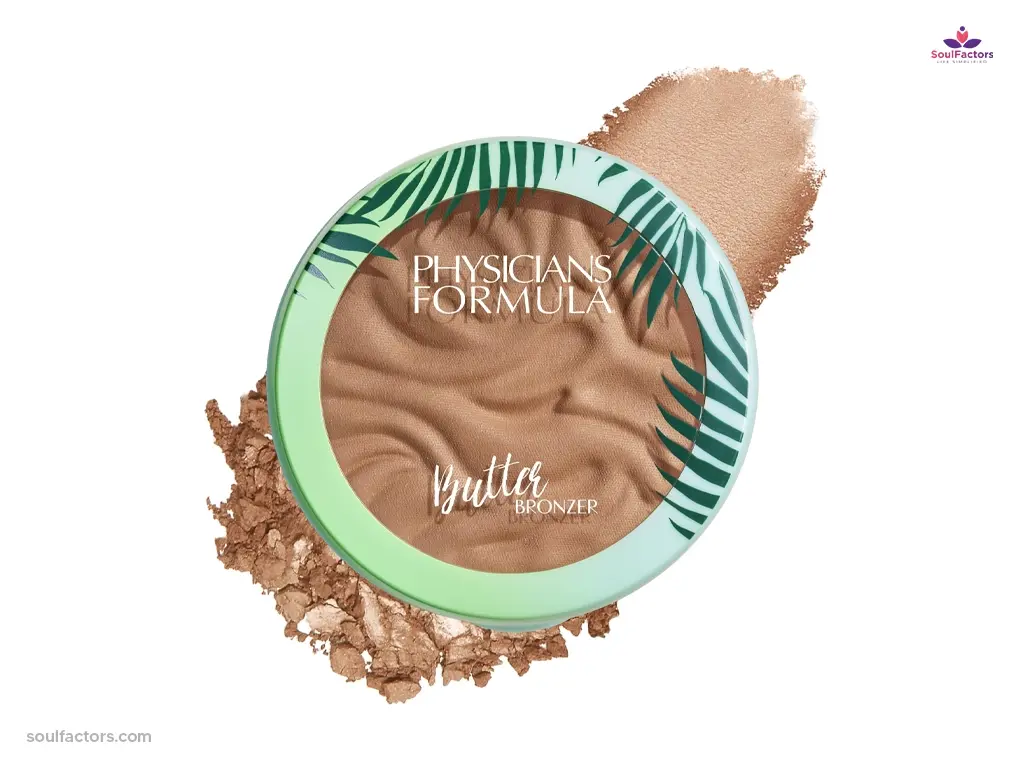
Price: $13.32
A creamy bronzing stick is suitable for dark skin tones. It offers a water-resistant, non-greasy sheer finish, easy to build up in layers.
FAQs
Contour sculpts and defines the face, while bronzer adds warmth. Your choice depends on the desired effect.
Choose a bronzer one or two shades darker than your natural skin tone for a sun-kissed look.
They serve different purposes; using both can add depth and warmth to your makeup.
No, bronzer provides a temporary, sun-kissed effect, not a lasting tan.
Temporarily, it gives the illusion of a tanner, radiant skin.
It’s best applied to areas where the sun naturally hits, like cheekbones and forehead, not all over.
While possible, the bronzer is typically too warm for effective contouring.
It should be slightly darker to create a natural, sun-kissed effect., sun-kissed effect.
Closing Remarks:
Mastering the use of bronzer and contour can dramatically elevate your makeup routine, offering dimensions and warmth to your look. So, understanding the difference between contour and bronzer is important. While they serve different purposes – contour for sculpting and bronzer for a sun-kissed glow – both are essential tools for a polished appearance. We hope this article answers the burning question while also helping you become better at enhancing your beauty with makeup.

Subscribe to Newsletter
Elevate your routine, stay on trend, and embrace a personalized beauty journey with our curated insights.


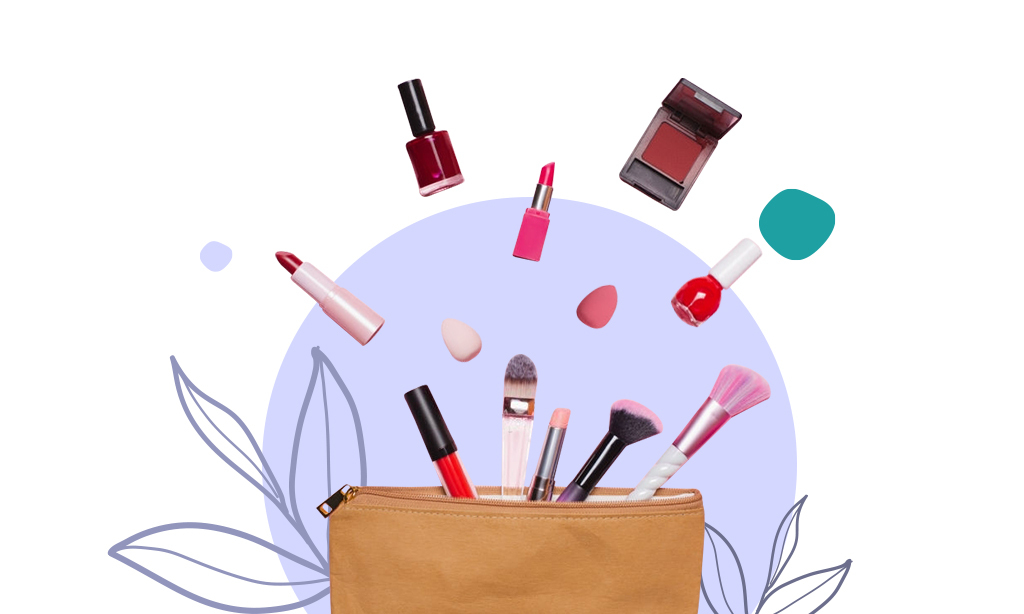
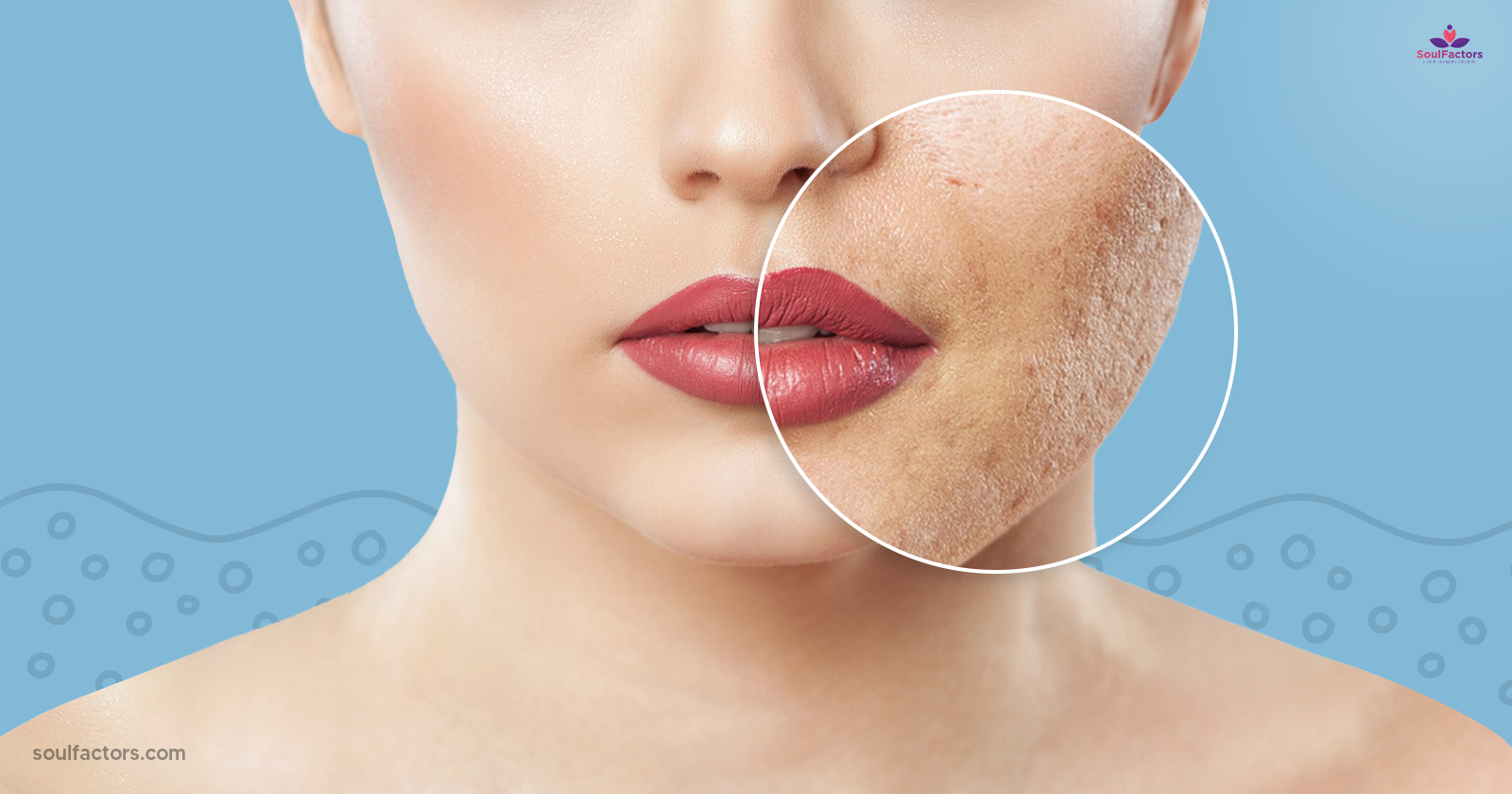
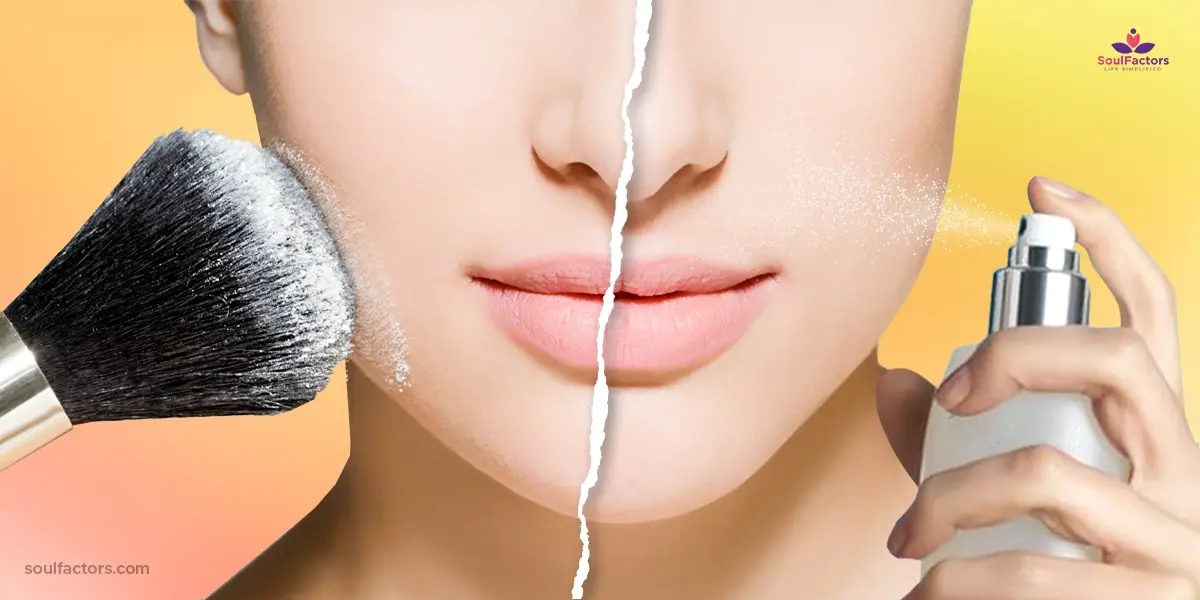
Write a Comment